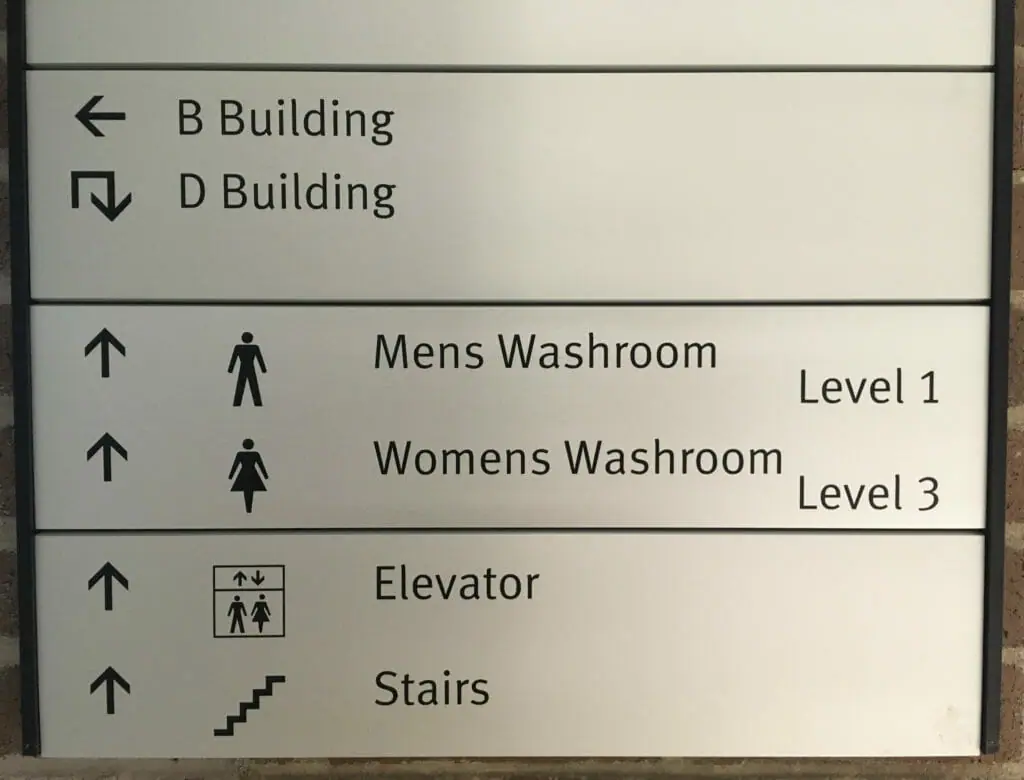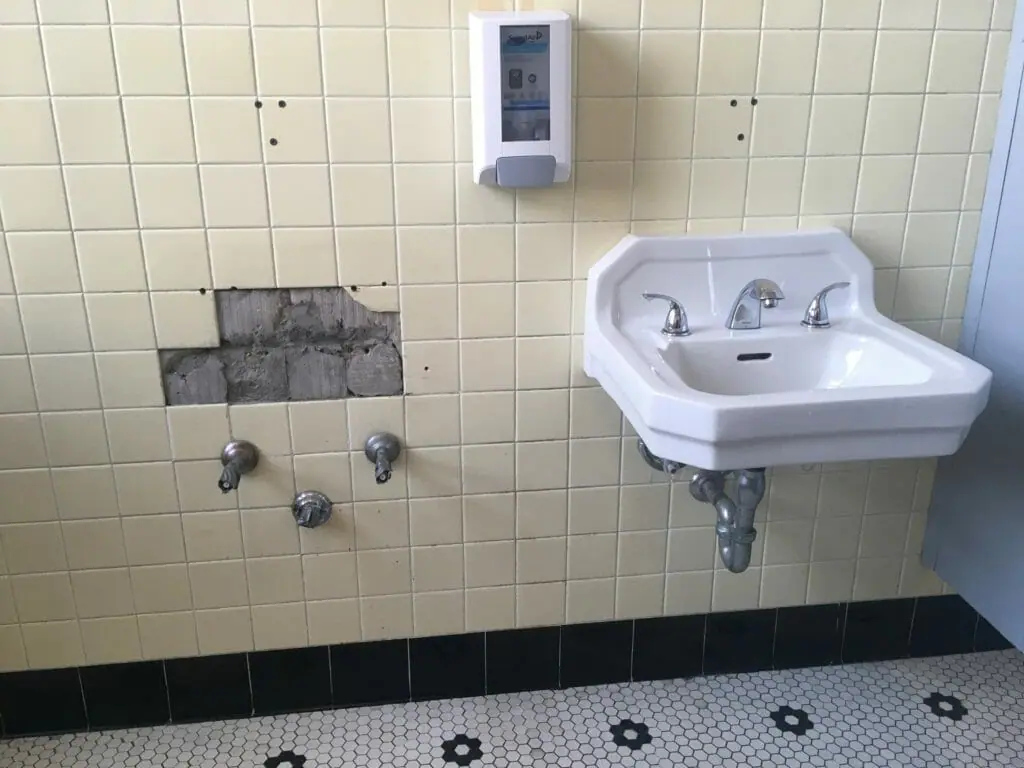A new researcher at Dalhousie University’s Groundwater Lab at the school’s Sexton campus didn’t expect it to be hard to find a women’s washroom on her first day. It took her 15 minutes.
Sofija Stanić spent her first day scouring the B-building’s maze-like halls, searching for a washroom she could use. In the end, she had to use an elevator to find one; it was a few floors up from her office. “I wasn’t sure if it was because I’m not familiar with the building or if it’s just very inaccessible,” she said. “It’s bizarre that it took me that long.”
Stanić is not the first one who has noticed the lack of women’s washrooms in the older buildings of Sexton campus.
Engineering student Alexandra Whidden said she has to “walk through the whole building” any time she needs to use a washroom. Compared to her male counterparts, she said it makes her miss more of her classes. “It’s annoying.”
Old buildings, old problems
In the newer buildings on the campus, such as the Emera IDEA building, the men’s and women’s washrooms are of equal size and placed next to each other. In the older buildings, this is not the case.
According to Sara Evely, the president of the Women in Engineering Society, women make up 26 per cent of the current engineering students. Yet, the facilities have not caught up.
Evely said Sexton’s A, B, C and D buildings, where the bulk of engineering classes take place, haven’t been updated since the ’70s when the engineering programs were still almost completely male-dominated. The women’s washrooms that do exist in these buildings are few and far-between.
Sarah Dawson, Dalhousie’s Senior Communications advisor said in an email statement: “We recently undertook a university-wide washroom count as part of the initiative to provide menstruation products in our campus washroom facilities.”
On Sexton, Dawson’s numbers show 27 male washrooms, 22 female washrooms and 44 gender-neutral ones.
Evely said the women’s washrooms have only been added recently — in converted rooms, in inconvenient locations. Before the Emera IDEA building was built, Evely said, if she was in the B-building, it would be a six-minute walk each way to find a women’s washroom.
“Women are half of humanity and I can’t even find a place to go pee,” said Evely. “That’s a basic human need.”
On the entire shared second floor of all four buildings, there is one two-stall women’s washroom.
On the third floor, there is another two-stall washroom with one sink. In the place of a second sink remain only exposed pipes with duct tape on them. In the corner sits a group of lockers used by various campus societies.
A bathroom door, beside staff offices on the third floor has a sign reading “Women’s” taped to it. “This was not here last week,” Evely said. She believed that an accreditation board was visiting, and that is why the label was there.
Sarah Dawson confirmed the Canadian Engineering Accreditation Board was assessing Dalhousie’s campus between Nov. 1-5. It happens at least once every six years.
Evely said she gets messages from female engineering students, at least bi-weekly, asking where the women’s washrooms are. In many areas of the campus, there are no signs pointing to where they are.
Sarah Dawson said: “On Sexton Campus, we have heard from students that there aren’t enough female washrooms centrally located in main areas and so there are a number of washrooms currently being changed to reflect enrollment trends in our STEM programs.”
Dawson said Dal has an ongoing project to “improve way-finding on Sexton campus which will help people find the existing washrooms. Any of the newly-constructed buildings are 50/50 washroom designations or gender-neutral single use washrooms.”
Overdue change
The reality for female engineering students is they must walk down several hallways away from their classrooms to find a washroom, past endless frames filled with black-and-white photographs of men who graduated from Dal’s engineering programs decades ago.
“There’s nothing on this campus that says that women go here and that women have a space here,” Evely said. “If they want women to come to this school, they really need to pick up the ball and update the infrastructure to reflect that they respect women and there’s a space for women on this campus.”
While women make up 26 per cent of engineering students at Dal, only 16 per cent of professional engineers in Nova Scotia are women. Evely says this could change if women see themselves in the industry while they’re at school.
“If they want to show that the industry is changing, they need to start here,” she said. “At some point somebody has to say this is a priority. How much do signs cost?” she said. “We just want to know where the bathrooms are.”
Kate Macdonald, an education coordinator at South House Sexual and Gender Resource Centre said that despite the Sexton campus’ location, we need to remember that its students are still Dal’s students, and their needs need to be met.
Evely believes the new dean of engineering, John Newhook, is passionate about drawing more female students to engineering. Evely said there has been talk about a map locating the women’s washrooms on campus and a possible women’s space on the bottom floor of the old President’s House building. So far, no changes have been made.
“When you don’t see yourself reflected in a space you wonder who the space was designed for and who we continue to prioritize in the space,” Kate Macdonald said. “When the building is not updated you show who you prioritize.”




Recent Comments